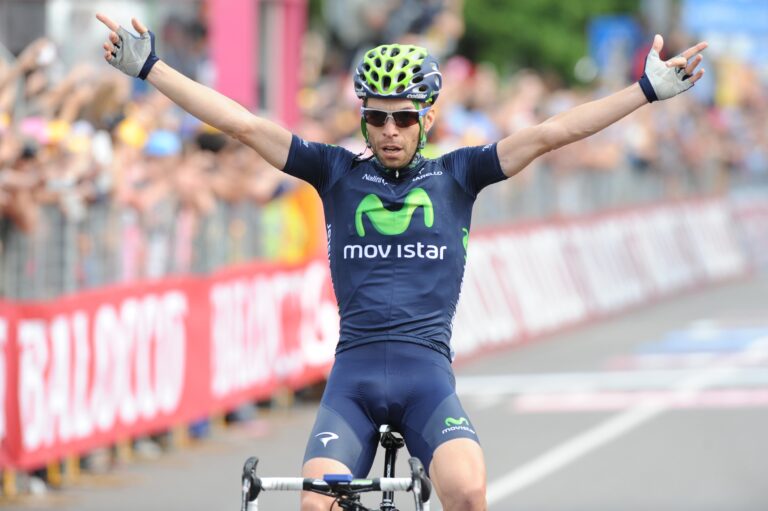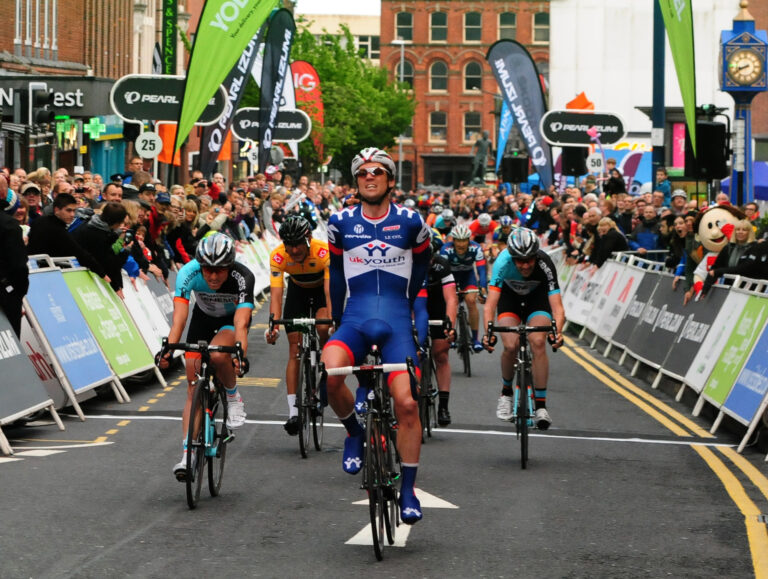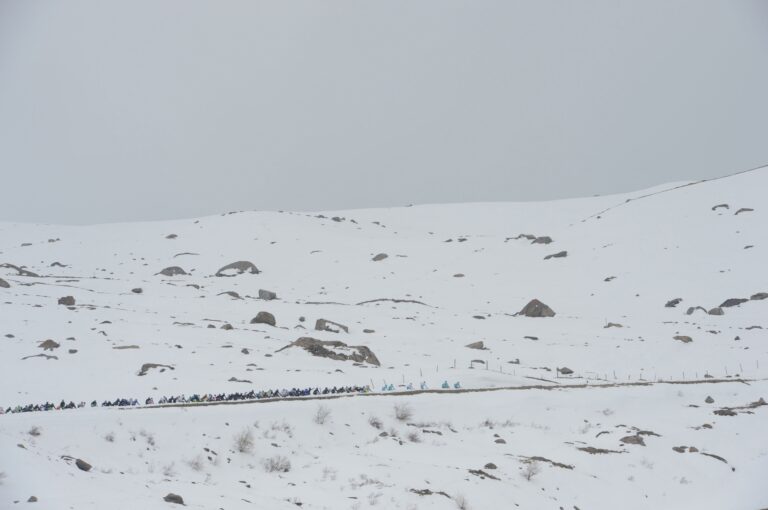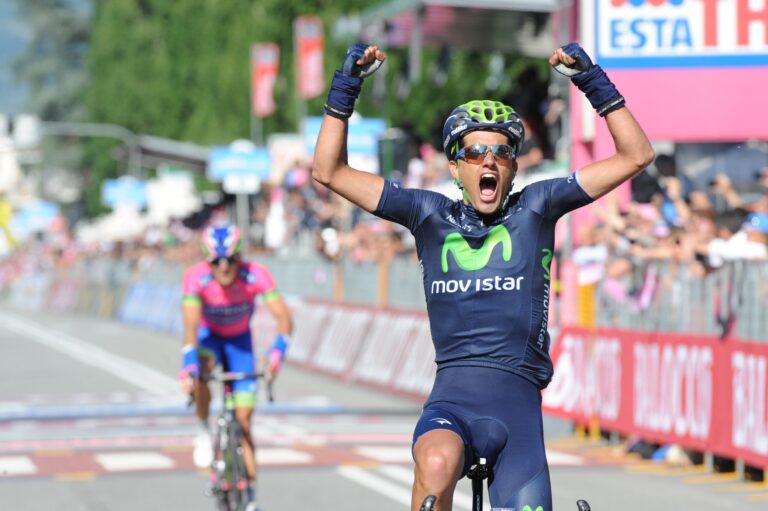Belgium is a nation synonymous with competitive cycling.
Its races (the Ronde van Vlaanderen, Gent-Wevelgem, Liege-Bastogne-Liege, to name just three) and its champions (Merckx, De Vlaeminck, Boonen et al) transcend the sport.
Its great marques, however, have all but disappeared from the peloton, swept aside by the mass produced output of American behemoths and their Asian partners. Machines bearing the name Merckx disappeared from cycling’s elite level at the end of 2011, and Sean Kelly’s path to the big time, ridden aboard a Flandria, seems unlikely to be replicated any time soon.
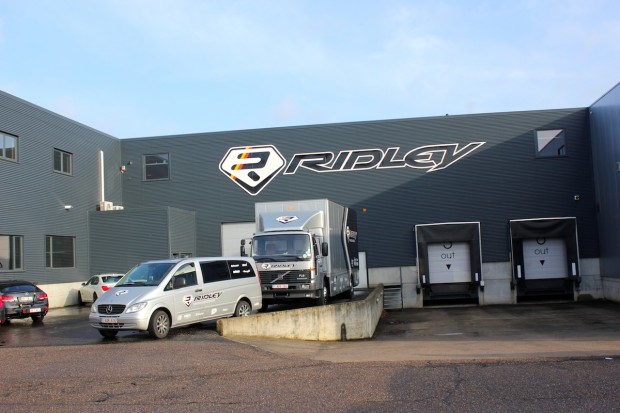
Jochim Aerts, founder and head of Ridley Bikes, aims to change that. His company, supplier to the Belgian Lotto-Belisol UCI WorldTour squad of Andre Greipel and Jurgen Van Den Broeck, is about to bring the production for its top end carbon models to Europe, and is at the centre of ambitious plans to create a ‘Bike Valley’ in Belgium, a concept inspired by California’s Silicone Valley.
When RoadCyclingUK met Aerts earlier this month, in the middle of the Classics season and on the eve of Ardennes Week, the talk was of a new time trial machine with integrated stem to be unveiled before the Tour de France, a new Ridley-owned facility in Moldova that will allow the brand to offer its most advanced carbon frames in custom geometries, and hints towards an ultimate ambition to bring carbon production to Belgium.
“I’m very pleased to be a frame builder again,” Aerts told RCUK and a select group of cycling journalists at Ridley’s Beringen HQ. “I don’t know any brand who is doing so much as we are doing: R&D, painting, assembling, and now the biggest step, again being a frame builder.” He is bound to say such things, of course, but Ridley’s many achievements – the facility in Moldova, which will begin production at the end of this year, the brand’s position at the centre of the Bike Valley project, and membership of an elite club of suppliers to the UCI WorldTour peloton – gives credence to his claims.
There is also an underlying seriousness to Aerts, still only 41, despite his obvious pride at steering his company from start-up to manufacturer of 35,000 frames per annum in just 12 years. “We feel that where we are today is not sustainable enough to be sure to be there tomorrow. The market is evolving very rapidly.” Demands from consumers and dealers, and the power of the American super brands, able to secure partnerships with UCI WorldTour teams seemingly at will, and to sponsor as many of them as they wish, he identifies as the principle threats to Ridley’s continued growth.

If such concerns, voiced in Ridley’s 12,000 square metre facility in Beringen, seem unduly pessimistic, he offers the example of Wilier, a brand he clearly admires, suddenly ejected from the UCI WorldTour by Lampre’s partnership with Merida.
So how does Ridley compete with the biggest brands in cycling? For a start, the company will remain focused on ‘competition’ bikes. Don’t expect to see a Ridley electric bike or child’s bike. A broader range would offer greater volume, Aerts concedes, but also increased competition. Ridley will remain true to its roots, and hope to reap the benefits of production focused solely on the high end, a modus operandi its founder claims offers accelerated development times.
Two ambitious projects will work in tandem with Ridley’s market positioning to prevent the ‘pushing out’ from cycling’s upper echelon recently experienced by the well-respected Wilier.
Bike Valley, inspired by the global reputation of the information technology industries populating California’s Santa Clara Valley, will focus on two-wheeled technology. The project includes 10 founding companies, five from within the cycling industry (Lazer helmets and BioRacer clothing among them) and five from outside (including Nike and the Belgian plastics company, Recticel). Their combined ambition, sufficient to secure backing from the Belgian government and the EU, will soon be demonstrated in a 35-metre wind tunnel to be housed in an “innovation centre” adjacent to Ridley’s headquarters. Plans for a tunnel of sufficient size only to test scale models soon escalated to the 35-metre long facility, some 2.2 metres in diameter, now five months into its construction phase.
The Moldova project cuts to the heart of Aerts’ involvement with cycling. Once the man wielding the welding torch on bespoke frames for BioRacer and bikefitting.com, his belief in the importance of custom geometry, and specifically the commercial advantage it offers Ridley, competing for customers prepared to spend 5,000 dollars/euros/pounds and more on their next bike, for it is only Ridley’s most advanced machines that will be offered in custom geometries, is borne of direct experience. The tubes will continue to be sourced from Asia, but this, it seems, is only a step: Aerts reveals that discussions are underway for Ridley to manufacture its own carbon tubes in Europe.
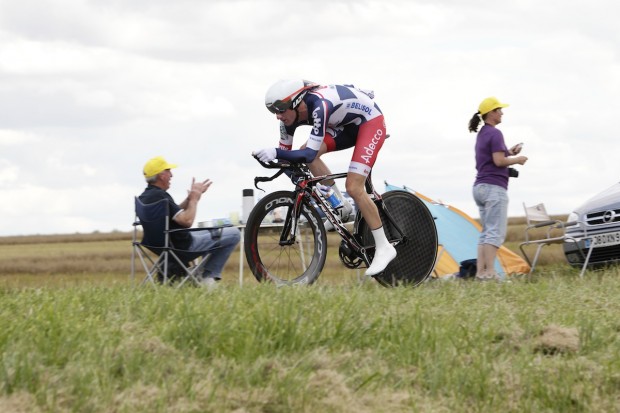
The first step, however, is for the Asian tubes to be cut and assembled to bespoke specifications in Moldova, a production method that offers a degree of customization absent from monocoque manufacture, where tube length is defined by the mould from which the frame is sprung.
While custom geometry will offer Ridley a significant commercial advantage over its rivals, Aerts believes the benefits of European manufacture are not limited to keeping production “in house”. Rising wage costs in south China, increasing at double digit percentages, he says, now makes them broadly comparable with those in Moldova.
Ridley commands a 30 per cent share of the Belgian market, with road bikes accounting for the majority of sales. Cyclo-cross, almost the national sport in Belgium, is another strong market for Ridley. Its X-Night model is ridden by the Telenet-Fidea team of Bart Wellens, as well as Kevin Pauwels’ Sunweb-Napoleon Games squad. Ridley also make track bikes, and a collaboration with AA Drinks, once sponsor to the road team of Lizzie Armitstead and Emma Pooley, will see the Belgian bike builder support two of Holland’s up and coming track talents. In the UK, Ridley bikes are sold under a ‘dealer-direct’ model. Two Ridley representatives, covering the UK and Ireland between them, visit independent bike dealers, who then order their stock directly from Belgium.
Ridley’s new ability to offer custom geometry will be witnessed first on the latest evolution of the Dean time trial bike. It will be officially unveiled at the Tour de France, but close observers of the UCI WorldTour peloton can expect to see Lotto Belisol’s team leader, Jurgen Van Den Broeck, on the machine, dubbed the Dean Fast, as early as next month. Central to its performance gains is a design with close integration of stem and top tube, a principle offering claimed significant aerodynamic advantages, and a matching handlebar, designed with input from experts in aerodynamics at Delft University.
We were shown a plastic model of the Dean Fast, but were asked not to take photographs. While UCI rules will compel Van Den Broeck to ride one of four or five sizes submitted by Ridley for approval, Aerts is keen to extoll the custom geometry that will be offered to his customers. Time trialists, and more likely, triathletes (the tri market accounts for 90 per cent of Dean sales) will be able to define the seat post angle and the length of top and head tubes.
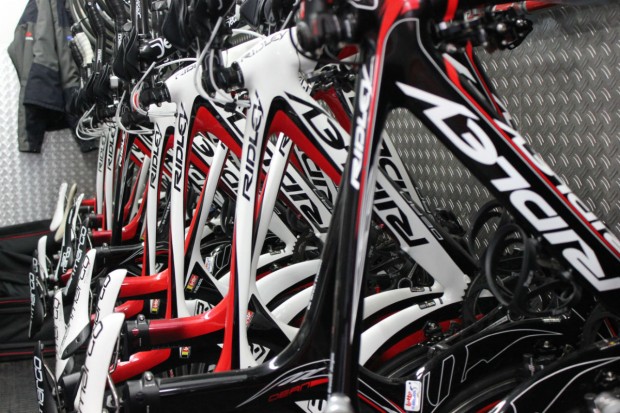
“This is where we want to go with Ridley – really focus on high end product,” said Aerts, clearly enthused by his plastic model. “Bring a new level to the market. If we have an integrated stem on the Dean Fast it’s a very logical step that the Noah Fast, second generation, will have an integrated stem, also available in custom geometry.”
The custom aspect will extend to painting and specification, both of which take place at the Belgian headquarters. Ridley will continue to make aluminium bikes, an aspect of the business which could follow the journey being made by its carbon manufacture.
For supporters of Belgian cycling, Ridley’s continued success story is cause for celebration. For a nation that holds cycling as its national sport (one that comes to a halt for the Ronde van Vlaanderen, an event afforded the street-emptying significance of the Grand National or FA Cup final in Britain) to have one of the world’s leading bike brands seems only proper. Aerts is clearly a man not content to rest on his laurels. His seemingly restless ambition will have at least as much influence on Ridley’s future as the success of Greipel and Van Den Broeck.


